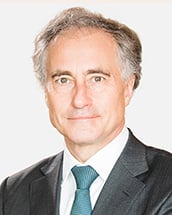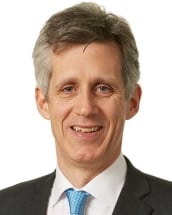In brief
The H2Global Foundation announced on 8 December the launch by its wholly-owned subsidiary, HINT.CO GmbH its first procurement procedure for the import of green ammonia into Europe. This procedure is intended to provide an innovative and efficient funding instrument, backed by EUR 900 million provided by the German Federal Ministry for Economic Affairs and Climate Protection, with further funding planned for 2023. This is the first global tender procedure of its kind.
The deadline for application is 7 February 2023.
H2Global
H2Global Foundation (“H2Global“) was set up by the German government to promote the protection of the environment and the climate, including by supporting the production and use of green hydrogen in Europe as well as promoting its import. Under the National Hydrogen Strategy the target for German H2 imports is 76-96 TWh per year by 2030.
The H2Global initiative was backed by very substantial state funding: when it was originally set up in June 2021. In addition to the EUR 900 million provided for the current procurement procedure, the German government has earmarked in its 2023 draft budget a further EUR 3.6 billion that can be spent by H2Global in future years. H2Global is open to donors (including from outside Germany) – currently more than 50 companies are engaged in the foundation.
The H2Global funding instrument
Under the H2Global funding instrument, Hintco buys, for its own account, hydrogen derivatives on a long term basis from non-EU or EFTA producers at the lowest possible price (as determined by a competitive bidding process) and sells it on a short-term basis at the highest price (again as determined by a competitive bidding process). HINT.CO, therefore, bridges the anticipated difference between the cost of production and the market price using public funding.
The Tender
The details of the tender can be found here. The key requirements include:
- The tender is for green ammonia for import into Europe (with subsequent procurement procedures to follow for green methanol and e-SAF).
- Production of the hydrogen derivatives must take place outside the EU and EFTA states and be delivered to a port in Belgium, the Netherlands or Germany.
- The period of the long-term purchase agreements is 10 years.
- The first deliveries of these sustainable hydrogen derivatives to Europe are planned for the end of 2024 or early 2025.
- Companies that have started their production project before applying to participate in the procurement procedure cannot take part in the procurement procedure.
- The hydrogen derivatives must be produced using renewable energy and in compliance with detailed sustainability requirements.
- Without funding under the H2Global mechanism, the hydrogen derivatives would not be produced.
- The successful bidder will need to demonstrate that its production project is technically and commercially feasible.
- Tender bids have to be submitted in German.
EU Hydrogen Policy considerations
This tender should be seen in the context of the EU’s wider H2 objectives – notably the ‘RePowerEU’ target of consuming 20MT of renewable H2 in the EU by 2030 (split 50/50 between EU-produced and imported), as well as the ongoing negotiations on the ‘Fit for 55’ package between the EU’s Council and Parliament.
This new legislation should create the conditions to drive renewable H2 demand in the EU. It will almost certainly provide for a legal obligation on Member States to ensure that H2 currently consumed by EU industry would be partially replaced by renewable hydrogen by 2030 (the Commission proposes 50%), as well as minimum blending requirements for air and maritime transport.
One key question for investors submitting tenders under the current round will be how to ensure that EU sustainability requirements – notably on ‘additionality’ and ensuring a minimum (70%) GHG saving will be met when producing the H2 outside the EU. Not least, as the additionality rule is not yet defined (the Commission is likely to adopt a draft Delegated Act in the coming weeks), this will require care when designing an offer.
Hydrogen Market Impact
The launch of the H2Global funding instrument is a potentially significant step forward for the green hydrogen sector. For project developers, we would expect it to stimulate investment in hydrogen production capacity (by offering revenue stability). For European consumers, it should increase demand for imported green hydrogen (as a mechanism for delivery of imported hydrogen at European market prices).
At the same time, the mechanism proposed by the H2Global Foundation will be of interest to many hydrogen policy makers around the globe as they look to deliver on their net zero commitments.






